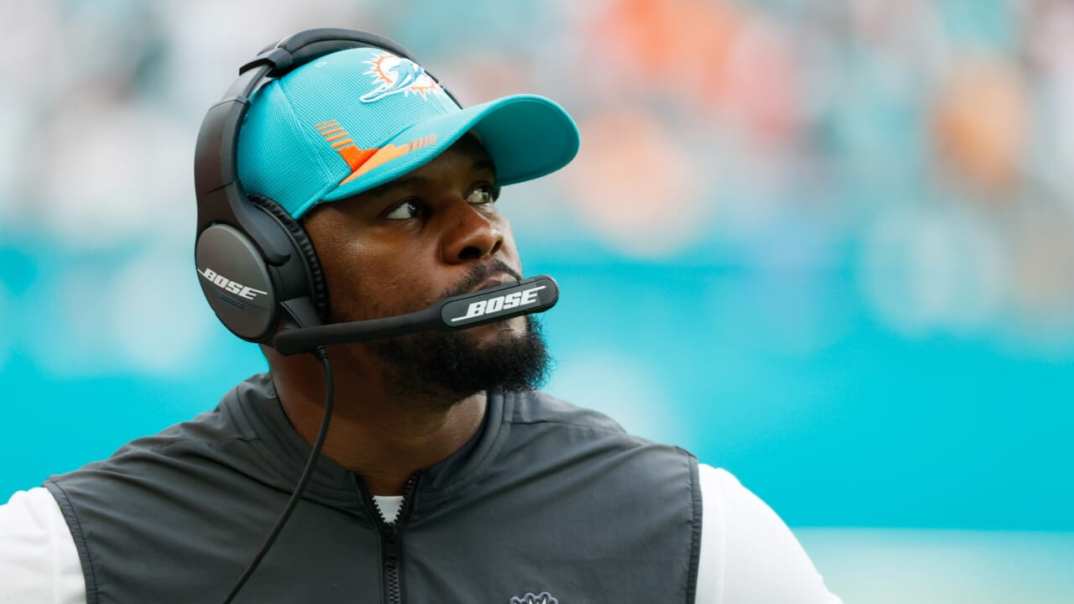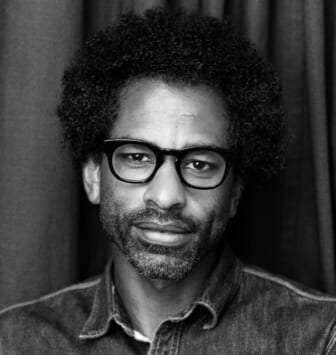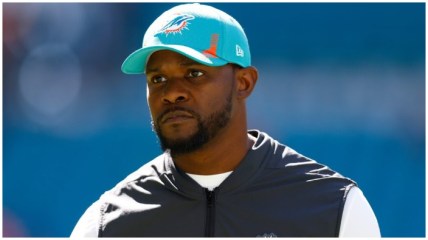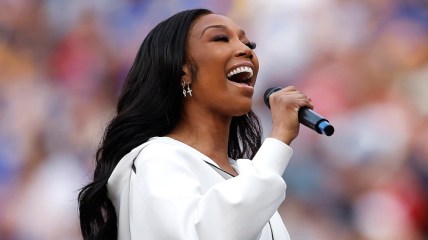Black people know what it’s like to be Brian Flores
OPINION: So many of us are at war with glass ceilings and white privilege, whether seeking a job as a CEO, a seat on the Supreme Court or a head coaching job in the NFL.

So many Black people know exactly what former Miami Dolphins head coach Brian Flores is going through. We know what it’s like to crash painfully into the glass ceiling after years of working hard in college, rising through the ranks of a company or an industry, playing the game, doing all the right things, showing your excellence until the big job comes up and…you don’t get it. It goes to some white boy who’s less qualified, less experienced, less excellent. But he’s got the complexion that says qualified, competent, promotable. This is white privilege—his color conveys the idea that he has the right qualities, especially when it comes to leadership roles.
Sure, he worked hard, sure he’s good, but did he work as hard as you? Does he have as many degrees as you? Did he wait as long as you? Is he as good as you? So many of us have felt that white-boy-got-my-job heartbreak and had to swallow hard and keep on going. We know what it is like to be Brian Flores, except Brian Flores just stood up and said no more.
Flores did get to his big dream job, running the horrible Miami Dolphins for three years, but after 20 years of building toward being an NFL coach—and delivering the Dolphins back-to-back winning seasons—Flores hit a glass ceiling. He could see what was happening. So he sued the NFL and three teams, which may end his NFL career and his two-decade dream. That’s tragic, but he could make a difference in the lives of others.
Affirmative action has become a dirty word for white people, but white people remain reluctant to hire us, especially for big, important jobs. Surely there are several highly qualified Black people who could make a difference as a head coach at any of the 32 NFL teams, but right now, there’s only one, Mike Tomlin in Pittsburgh. This sort of dearth exists in many fields; it’s still hard for many of us to get chances, and affirmative action seeks to rectify that, but in the NFL, we see that it’s not working, so what do we do? There were almost no Black head coaches when there was no Rooney Rule (the NFL’s version of an affirmative action program), and there are almost no Black head coaches when there is an affirmative action program, so what are we supposed to do?
I think a critical aspect of American racism is at the core of the Flores situation—white people inherently respect our physical prowess, which is why Black people make up the majority of the players in the NFL. White people understand that we know what to do with our bodies, and they trust us to make the big catch or the power run. But they still struggle to trust our intellectual capabilities. They feel mentally superior. So they blanch at the notion of Black NFL head coaches or Black Supreme Court justices or Black CEOs. They think surely, there must be a qualified white person.
I salute Flores’ sacrifice and his courage to attack the NFL. So many of us are at war with glass ceilings and white privilege. So many of us are Brian Flores. We need people like him who are willing to take up arms against racism. We may one day look back at this era and say the most influential person in the NFL was him.

Touré is the host of the podcast “Toure Show” and the podcast docuseries “Who Was Prince?” He is also the author of seven books.
Have you subscribed to theGrio podcasts “Dear Culture” or “Acting Up?” Download our newest episodes now!
TheGrio is now on Apple TV, Amazon Fire and Roku. Download theGrio.com today!


